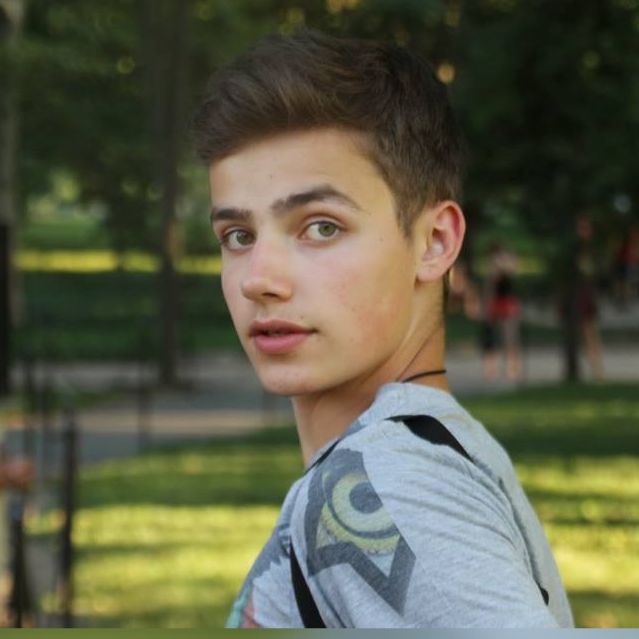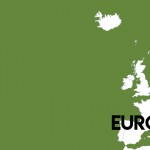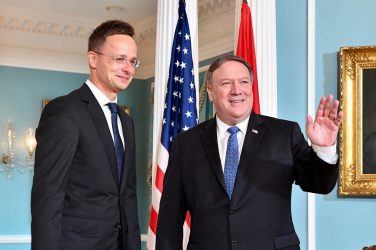…two new editors! Mykolas from Lithuania has joined as editor of Brain and Diaphragm, and Jessica from the Netherlands is going to work on Heart. Both have contributed to Europe & Me with their own writing, so maybe you are already familiar with their names. With new energy, the editorial team is now working hard on the upcoming 50th (!!) edition which will celebrate the success of E&M so far!
E&M: Why did you want to become an editor for E&M?
Mykolas: I have never worked as an editor, so I thought of E&M as a great place to start given its transnational vision and openness to a wide array of topics and perspectives.
Jessica: I have been writing for E&M for a couple of years now and I simply love it. I noticed how I was able to develop my own writing style, and it has been a great opportunity to dive into topics I care about besides my daily work and studies. I believe that trans-European platform like E&M are crucial, especially now that the European project is under attack from so many angles. I think that sharing our experiences in and of Europe helps us to understand that we have more in common than some people would want us to believe. So I am very eager to help shaping E&M further and to contribute to its success.
E&M: What have you been doing before joining the editorial board?
Mykolas: Before joining E&M I was studying “Politics, Psychology, Economics and Law” at the University of Amsterdam. After graduation, I moved back to my home city Vilnius. Since then I have done a couple of internships at policy-analysis agencies and worked as an assistant to an MP at the Lithuanian parliament.
Jessica: The last years were full of moving around the European continent: I studied in Amsterdam and in Stockholm, and in between I lived and worked in Berlin for a while. As I grew up in Portugal, I returned to Lisbon in 2019 to write my master thesis on the city’s urban greening strategies and worked for the University of Lisbon for a year. But a few weeks ago I moved again, this time to Bern (Switzerland) to start my PHD-project on urban densification processes.
E&M: Playing favourites! What is your favourite city, your favourite person and favourite food in Europe and why?
Mykolas: There are only two cities I lived in for a longer period of time – Vilnius and Amsterdam. I love the former for its distinctiveness, greenness and a curious blend of Eastern and Western influences. The latter – for its lifestyle and picturesque architecture.
My favourite European is a literary master – Milan Kundera. His writing strikes you with unexpected observations about a wide array of subjects (from love to laughter, history and politics) all neatly fitted in separate yet overlapping stories of numerous characters. Cynical in his view towards life and hilariously snobbish in his attempts to approach every issue with an authentic take he has been my favourite author (not only European) for quite a while now.
Favourite cuisine has got be Ukrainian. Cherry Vareniki and Borsch is a lunch combo that I would go for every day, if it were not for the risk of gaining too much weight. The hospitality of the locals makes the whole dining experience even more enjoyable, as you are greeted by a waitress with a round of Horilka (a type of Ukrainian vodka) shots on the house.
Jessica: How can one pick a favourite city? Let’s start with the easiest one: my favourite European food is definitely cheese! Dutch, French, Swiss, Portuguese, Italian, it doesn’t matter. I love blue cheese, but honestly any type of delicious cheese can make my day.
Lisbon is definitely my favourite European city in the sense that I consider it my home city, and I love its southern vibe, its beautiful historic centre, its “miradouros” and the easiness of everyday life. But having moved to Bern recently I equally love how this place is small, green, beautiful and very strongly connected to nature. I think cities are just like people: each one has its goods and bads worthy to be discovered.
My favourite European person is Ada Colau, the Mayor of Barcelona. To me she is such an inspiring person, starting as an activist doing street protests against evictions in the city and eventually being elected Mayor of one of Europe’s most emblematic cities. She struggles a lot trying to reconcile massive issues such as global tourism and the ongoing housing crisis, with her very strong beliefs in justice and solidarity – all of this while also being a mother of two! I really recommend the documentary “Ada for Mayor” if you want to learn more about her.
E&M: What does Europe mean to you?
Mykolas: For me Europe is first and foremost an opportunity. An opportunity to experience life beyond one’s place of birth, to learn about other cultures and ideas by directly encountering them as opposed to hearing about them through a lens of your own milieu. In this sense, being European means being challenged in one’s ways and thinking. Not an easy process but definitely worthwhile.
Jessica: Europe is essentially my everyday living environment: my work, my friends, my family, my travels. My home, really. But to me Europe is also very much a political project, in which I strongly believe. The fact that I can feel welcome in a European country where I have never been before, is a direct consequence of this political project. However, I am also fully aware of the fact that this is a huge privilege, to which many people (other Europeans including) do not have access. So there is still much work to be done!
E&M: What kind of Europe do you wish to see in the future?
Mykolas: I hope that in the future governments and publics of the member states will no longer merely see the EU as merely an instrument for their own gain (think of scapegoating the EU to improve one’s political ratings or demanding ever-increasing amounts of support without implementing any meaningful reforms) but as a political union of shared duties and responsibilities. Only with such political stability can we start talking about our ability to respond to the pressing challenges we face as Europeans.
Moreover, coming from a country that has joined the European political family not so long ago, I think it is important to open the gates for new member states. Refusing to do so would be a grave mistake in a world where the big powers are still battling for regional influence, including Europe.
Jessica: In my ideal future Europe, Europeans would more and more see each other as fellow citizens instead of potential competition, nuisance, a source of income or a source of cheap labour. This would start with a change of political discourse which is drastically needed, and at the same time with a more just distribution of economic benefits across the continent. The fact that many people are feeling left behind by the European project will eventually mean its ending, if not properly addressed in the next years.
Cover photo: Unsplash by Jakob Braun












